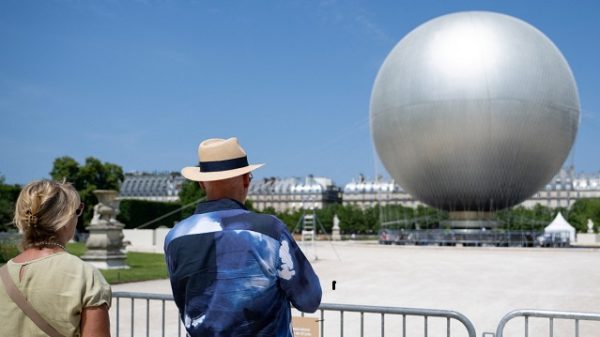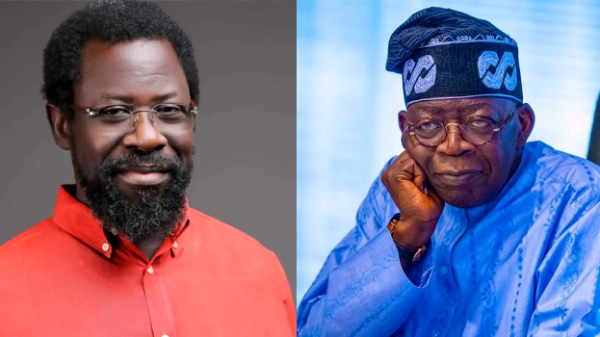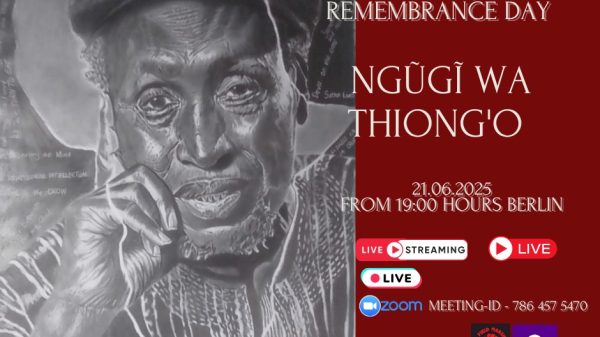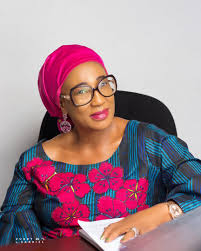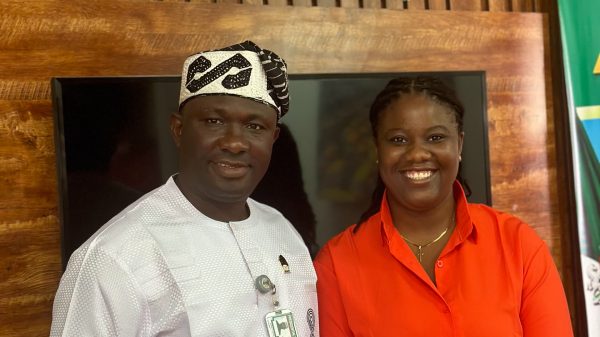The legacy of the great is often preserved not just in monuments or memoirs, but also in the women they leave behind. History has repeatedly shown that some women — not by social obligation or cultural restriction, but by choice — choose to honor their late husbands through a life of remembrance rather than remarriage. From the calm elegance of Bianca Ojukwu to the silent strength of Ajoke Muhammed, and the unshaken loyalty of Victoria Aguiyi-Ironsi, these women have defined widowhood with dignity.
Bianca Ojukwu, Nigeria’s Foreign Affairs Minister, remains celebrated not only for her diplomatic prowess but for the quiet reverence she holds for her late husband, Dim Chukwuemeka Odumegwu Ojukwu. She lost him in 2011 at the age of 42. Fourteen years later, she has not remarried — not because she couldn’t, but because she chose not to. Her decision has never been a subject of media scrutiny or public trials, but a testament to a woman’s right to live in memory, rather than be forced to start over.
Similarly, Ajoke Muhammed, the widow of Nigeria’s former Head of State, Murtala Muhammed, became a widow at 35 in 1976. In the 49 years since, she has never remarried. Her life has been marked by graceful public service and a quiet devotion to her husband’s memory, which many across Nigeria admire. She turned tragedy into a lasting legacy of contribution and resilience, never making headlines for scandals or disputes.
The late Victoria Aguiyi-Ironsi was about 43 years old when she lost her husband, Nigeria’s first military Head of State, Major General Johnson Aguiyi-Ironsi, during the 1966 coup. Until her death in 2021, she never remarried. Her decision was never debated or ridiculed, because it was understood as a personal choice wrapped in history, honor, and heritage.
The Wives of Late MKO Abiola, that survived him were about 3 ,when he died controversially in prison, including the honourable Doyin Abiola never remarried till date. They still bear the name Abiola with honour.
These women — Bianca, Ajoke, and Victoria — did not choose widowhood; it was thrust upon them. Yet, in their response, they became custodians of national memory. Their continued loyalty was never enforced by cultural laws or legal mandates but by deep personal values and emotional fidelity.
In Igbo cosmology, women who bear male children are perceived to have cemented their place in their husband’s lineage. In cases of divorce or death, they are regarded as still belonging to their husband’s home, as their sons are direct heirs and carriers of the family name and tradition. This cultural nuance helps understand why many widows, particularly those with sons, rarely face pressure to remarry.
Frances Iwuanyanwu, wife of the late elder statesman and former President-General of Ohanaeze Ndigbo, Chief Emmanuel Iwuanyanwu, falls into this category. Her story is still unfolding, raising questions around the authenticity of the widespread news about a controversial clause in her husband’s Will.
What has been circulated is that Chief Iwuanyanwu’s final Will contains a condition barring his wife, Frances, from remarrying if she wishes to retain the properties and privileges left for her — an unusual and deeply controversial clause. But as this report continues to circulate, it has sparked debate and disbelief in equal measure. The supposed clause is casting a shadow over Chief Iwuanyanwu’s widely acknowledged reputation as a generous, fair, and forward-thinking philanthropist.
If Chief Emmanuel Iwuanyanwu, a man who selflessly donated his iconic Glass House near the Orji flyover in Owerri to charity and public trust, could leave such a remarkable legacy to strangers and society, would he truly impose a punitive condition on his beloved wife? Would a man so celebrated for his empathy and service to community deliberately limit his wife’s future with a clause that undermines her dignity and agency?
This clause — if it exists — is not just inconsistent with Chief Iwuanyanwu’s public character, it misrepresents him. It creates an image of a man who, even in death, sought control over the personal decisions of his grieving spouse. This is not the legacy many who knew the Chief would associate with him. So, if the Will is not publicly available, how did such a specific and damaging claim spread like wildfire?
Who released this information in the first place?
The Will, according to reports, was disclosed by its administrator, Chief Chukwuma Ekomaru (SAN). But legal analysts and concerned observers have raised pertinent questions: Can such a private document be publicly released without being contested in court? Was it Chief Iwuanyanwu’s wish that his Will become a matter of public validation?
In legal traditions, especially surrounding Last Testaments, privacy is sacrosanct. Unless there is a formal dispute or a legal challenge, the contents of a Will are typically kept within the family and probate processes. So why now, and why this clause?
Could it be that some parties have vested interests in how Chief’s properties are ultimately shared? Could the leak have been motivated by internal family tensions or legal maneuvering?
What’s the motive behind the leak? And more importantly, what’s the agenda?
Let’s assume — purely hypothetically — that the clause is real. If Frances chooses to remarry, what happens to the assets? Are they redistributed among family members? Does the clause define the process? If not, then the clause is legally ambiguous and ethically unfair, opening a Pandora’s box of questions about the protection of widows’ rights in Nigeria.
What does it say about us as a society that we are so quick to validate and share a clause that punishes a woman for potentially rebuilding her life, especially in the absence of confirmed documentation? This public narrative is not in Frances’s interest, nor does it align with Chief Iwuanyanwu’s philanthropic legacy. It may well signal the beginning of a family dispute disguised as a matter of public interest.
Is this the final revelation of late Chief Emmanuel Iwuanyanwu’s Will? Or will there be further twists? Is this news an act of transparency or a sign of a brewing cold war in the family?
Whatever the truth may be, Frances Iwuanyanwu should not be forced to live in the court of public opinion. Her life, her mourning, her choices — all deserve respect and privacy. The story of Frances should not become tabloid fodder. It should instead serve as a mirror, reflecting how society responds to the complex realities of widowhood and inheritance.
Women like Frances, who stood by their husbands in life, should not be placed on trial in death. She has a son with Ahaejiagamba — a powerful cultural bond in Igbo tradition — and that son remains a living bridge between Frances and the Iwuanyanwu legacy. Just like other great Igbo families whose matriarchs were never abandoned or shamed, the presence of a male heir is more than a status symbol — it’s a cultural seat of permanence.
No matter the social expectations or media buzz, remarriage is a deeply personal decision. Frances has not chosen to remarry, and there is no record of her pursuing that path. That decision alone should silence further assumptions. A clause, real or fabricated, should not define the narrative around her.
Chief Iwuanyanwu’s legacies are vast — political, philanthropic, and cultural. Let us remember him for that. And let us give Frances the peace to carry on her journey, just as Ajoke, Victoria, and Bianca have done — not under coercion or law, but through choice, honor, and quiet strength.

Chief Emmanuel Iwuanyanwu and Frances







